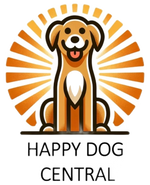Providing the right nutrition is one of the most important ways to keep your dog healthy and happy. Dogs' dietary needs change as they age, and factors like size, breed, and activity levels also play a role in determining the best food for them. Here's a guide to understanding your dog's nutritional needs throughout their life stages.
1. Puppy Nutrition
Puppies grow rapidly, and they need a diet rich in nutrients that support healthy growth and development. Look for puppy-specific food with higher levels of protein and fat to support their energetic lifestyle and growing bones.
-
Protein: Puppies need more protein than adult dogs, as it helps develop muscles, tissues, and vital organs.
-
Fats: Healthy fats, such as omega-3 and omega-6, support brain development and give puppies the energy they need to explore their world.
-
Vitamins and minerals: Puppies require a balance of vitamins like calcium and phosphorus for proper bone development.
A great way to support your puppy’s nutritional needs is by adding a boost of natural ingredients with Irish Rover Nutrient-Rich Superfoods for Dogs Variety Pack, specially crafted to promote healthy development in young dogs.
Feeding schedule: Feed puppies 3–4 small meals a day until they reach about 6 months old. From there, you can reduce feeding to two meals a day as they approach adulthood.
2. Adult Dog Nutrition
Once your dog reaches adulthood, their nutritional needs change. They require a balanced diet to maintain energy levels and overall health, but without the extra calories needed for growth.
-
Protein: Adult dogs still need a good amount of protein, though slightly less than puppies.
-
Moderate fats: Healthy fats continue to be important for coat health and energy.
-
Fibre: Aids in digestion and helps manage weight by increasing satiety.
Feeding schedule: Most adult dogs thrive on two meals a day, though some may do well on a single meal depending on their breed and lifestyle.
Treat your adult dog while maintaining healthy habits with our Premium Salmon Fillet Dog Treats (1kg pack)—a high-protein snack that supports skin, coat, and heart health.
3. Senior Dog Nutrition
As dogs enter their senior years, their metabolism slows down and they become less active. Their diet should focus on essential nutrients while reducing calorie intake.
-
Reduced calories: Helps prevent weight gain in less active dogs.
-
Joint support: Ingredients like glucosamine and chondroitin aid aging joints.
-
Antioxidants: Help strengthen the immune system.
-
Easily digestible food: Gentler on sensitive stomachs common in older dogs.
The Irish Rover Nutrient-Rich Superfoods Variety Pack is a fantastic addition to a senior dog’s bowl—full of vitamins and natural ingredients that support aging gracefully.
Feeding schedule: Stick to two meals daily, adjusting portion sizes and food type as needed.
4. Special Dietary Needs
Some dogs have unique dietary needs due to allergies, medical conditions, or specific health goals. Always consult your vet before introducing a new diet.
-
Grain-free diets: Beneficial for dogs with sensitivities (always consult a vet first).
-
Low-calorie diets: Ideal for weight management in overweight pets.
-
High-protein diets: Great for active, working, or recovering dogs.
Whether you’re feeding for wellness or performance, both our Irish Rover Superfoods and Premium Salmon Treats are excellent options for dogs with specific dietary needs.
5. Hydration
Just like humans, dogs need to stay hydrated. Clean, fresh water should always be available—especially in warm weather or after activity.
6. Portion Control and Treats
Portion control helps prevent obesity and related health conditions.
-
Portion size: Follow the feeding guidelines provided by the food brand and consult your vet for customised advice.
-
Treats: Treats should make up no more than 10% of daily intake.
Reward your dog smartly with our Premium Salmon Fillet Dog Treats—rich in omega-3 and low in unnecessary fillers.
7. Feeding Tips for Different Dog Sizes
-
Small breeds: High metabolism means they need calorie-dense food in small portions.
-
Large breeds: Require joint-supportive formulas with controlled fat content to avoid obesity.
Conclusion
Each stage of your dog’s life brings new nutritional needs. Understanding these changes is key to keeping your pup strong, happy, and healthy. Whether you're raising a bouncy puppy, an active adult, or a wise senior, a tailored diet with quality ingredients ensures lifelong wellness.
Support your dog's health with the Irish Rover Nutrient-Rich Superfoods Variety Pack and reward good behavior with delicious, nutritious Premium Salmon Fillet Dog Treats.
They’re not just treats or supplements—they’re steps toward a healthier, happier dog

